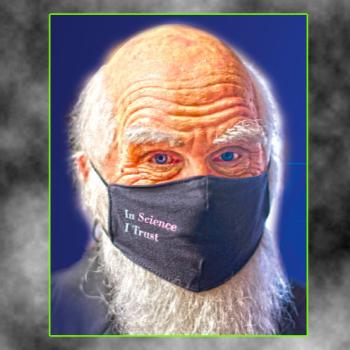
AUTHORITIES in Russia’s Volga Federal District found nothing amusing about a satirical article written in April by Aleksandr Pichugin, above, about an Orthodox church’s failure to observe COVID-19 precautions.
Describing Palm Sunday services as “a planned action to infect people with a deadly disease,” Pichugin said the Russian Federal Security Service had purportedly accused the church of holding “a planned activity … with the aim to infect people with a deadly disease,” and called potentially infected people “suicide bombers.”
Pichugin, according to this report, was subsequently charged with:
Public dissemination of knowingly false information that poses a threat to the life and safety of citizens.
Prosecutors requested a suspended sentence of two years and six months. But instead the journalist was fined 300,000 rubles ($3,920) after he was found guilty this week at the Bogorodsk city court of:
Posing a threat to citizens’ lives and health.
Pichugin’s lawyer Tumas Misakyan said the ruling will be appealed.
Ahead of the November 11 verdict the Committee to Protect Journalists (CPJ) said Russian authorities should stop harassing and pursuing legal action against Pichugin over satire.
Gulnoza Said, Europe and Central Asia Programme Coordinator for the New York-based media rights group said:
Authorities should drop all the charges against journalist Aleksandr Pichugin, and ensure that no one faces criminal convictions over their commentary on events of public interest.
Pichugin said the post reflected his exasperation with the church’s failure to comply with coronavirus restrictions. He also said he published the post after the governor of the Nizhny Novgorod region asked him and other bloggers to use their influence to encourage people to follow COVID-19 restrictions.
Pichugin’s lawyer had argued that the case would discourage journalists from discussing sensitive topics.
One of the worst breaches of coronavirus rules occurred in Russian in June during the great pilgrimage of the miraculous icon of St Nicholas which ended in Velikoretsk.
Several thousand pilgrims from all over Russia participated, despite formal prohibitions of large gatherings. Many villagers along the way refused to welcome them, quench their thirst and feed them, as would be the tradition, by hanging the notice “Quarantine – Entry forbidden to pilgrims” on gates.
Doctors from Velikoretsk also refused to assist the pilgrims, and the grocery stores remained closed, leaving the faithful without food.

 I’d love a cup of coffee
I’d love a cup of coffee








